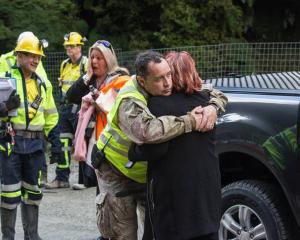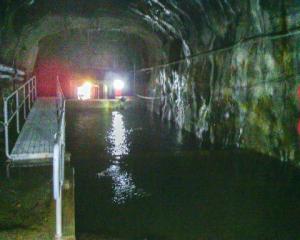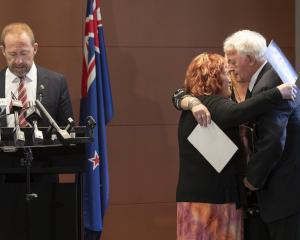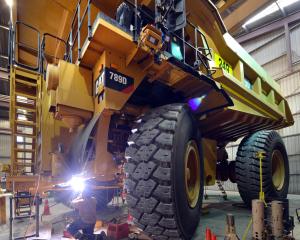The former University of Otago School of Mines should be re-established and other steps taken to further improve safety in the mining industry, after miners were trapped underground in the Pike River Coal mine, Dunedin mining consultant Ron King says.
Mr King was New Zealand's chief inspector of mines until that post was disestablished amid restructuring in the mid-1990s.
He had earlier served as director of mines in Australia's Northern Territory in the 1980s, helping develop the region's mining safety legislation, and also been senior inspector of mines in New South Wales.
Mr King felt for the miners who were trapped underground in the Pike River Coal mine, for their families and for the mine managers working to deal with the aftermath of Friday's gas explosion.
Mr King has spent considerable time working underground in mines since working at a coal mine near Brighton, Dunedin, in the 1960s.
He noted that after two miners died in separate accidents in 2006, the Department of Labour circulated a discussion paper on ways to improve safety-related support.
In 2008, the department had issued a report summarising public submissions and noting that, overall, there had been a reduction in mining industry-related deaths, Mr King said.
Multiple-fatality incidents occurred in the coal-mining industry every 13 years, on average, the most recent being at the Mt Davy mine (1998, three fatalities).
Most of these incidents involved "explosions caused by ignited mine gases", the report noted.
After operating for over a century at Otago University, the Otago School of Mines was transferred to Auckland University in 1987 and later disestablished.
Mr King, who gained a bachelor of engineering degree through the Otago school, said the rapidly rising price of high-quality coal, gold and other minerals meant New Zealand mining activity was also increasing.
Re-establishing the Otago school would provide a crucial source of New Zealand-trained mining engineers and metallurgists, and Otago University's existing strengths, including in geology and surveying, would make this a cost-effective idea, he said.
Over the years, many experienced and well-qualified people had been lost from the mining-related inspectorate and limited resources meant there were fewer mining inspectors these days and more time had to be spent on desk work.
More inspectors with a mining engineering background would help improve industry support and safety.
Changes in the Government's approach over the years meant that mining firms were now required to do more self-monitoring, but also with less specialised support and more responsibility if anything went wrong.
Regulations contained in previous mining legislation - before the Health and Safety in Employment Act was introduced in 1992 - should also be reintroduced, as part of a code of practice, to ensure that a great deal of specialised safety knowledge was not lost, he said.
Energy Minister Gerry Brownlee told Q+A yesterday there would be an inquiry into what went wrong at the mine, once the incident was over.











